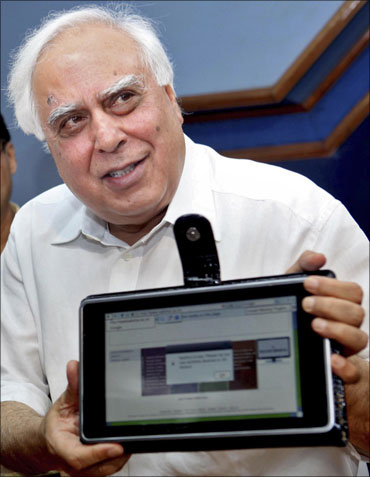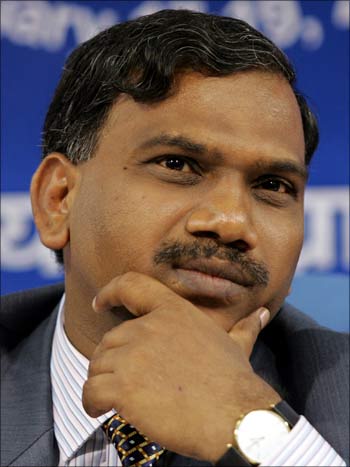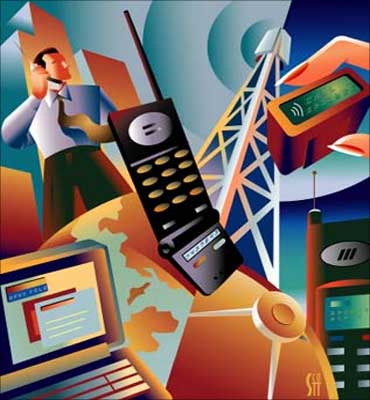 | « Back to article | Print this article |
Sibal's 'zero loss' claim carries zero credibility!
There has been a good deal of debate after the telecom minister, Kapil Sibal, came out with his 'zero loss' assertion, in relation to the pricing of spectrum three years ago. Sieving through the debate, the following seems to be clear:
Mr Sibal's position on spectrum pricing is the same as that of Mr Raja. Indeed, he repeats Mr Raja's claim that his decisions had the approval of the prime minister and other ministers concerned, including the then as well as current finance minister.
In substance, the pricing decision was in line with the recommendations of the Telecom Regulatory Authority of India, and no different from similar decisions by the government in the past.
Taking these assertions as true, Mr Sibal's follow-on claims and justifications merit examination.
Click NEXT to read on . . .
Sibal's 'zero loss' claim carries zero credibility!
He says that the government's intention has never been to maximise revenue, what it is interested in is increasing tele-density through low-cost services. Indeed, this is what has been achieved, as Mr Raja argued in his defence.
The problem is that the link between low spectrum pricing by the government and the claimed result of low telecom charges and, therefore, greater tele-density is non-existent, because those who got the spectrum promptly encashed the gift and made windfall gains -- which is when the scandal blew up in everyone's face, not when the Comptroller and Auditor General came with his calculator nearly three years later.
If what was intended to be a consumer benefit ended up being an intermediary's windfall gain, the policy obviously backfired.
And it is precisely because private parties got the benefit that the taxpayer could have got that there have been charges of large-scale revenue loss.
Click NEXT to read on . . .
Sibal's 'zero loss' claim carries zero credibility!
Mr Sibal said at his press conference that there was no revenue loss, something that his written statement does not say.
Perhaps he got carried away while speaking, because even he would accept that an auction would have got the government greater revenue, and that private parties milked the situation to pocket windfall gains.
Maintaining the zero-loss claim, therefore, involves justifying the failure to do proper price discovery, as through the spectrum auction in 2010 for 3G services.
In a TV interview to Karan Thapar in the wake of the to-do over his zero-loss claim, Mr Sibal argued that the comparison between the two situations is not valid, because 3G is like a Rolls Royce car while 2G is a Maruti 800.
This comparison does not hold, because the companies that have bid and got 3G spectrum are using it for the same voice service that they were delivering with their 2G spectrum. And, please note, call rates have remained low even after companies have paid through their nose for 3G spectrum.
Click NEXT to read on . . .
Sibal's 'zero loss' claim carries zero credibility!
If we focus on the reality that the whole country can see, and not the technicalities of government policy-making that Mr Sibal focussed on, the issue that remains to be debated is the quantum of loss to the government.
Mr Sibal questions the CAG's figure of Rs 1.76 lakh crore (Rs 1.76 trillion) on the perfectly valid argument that you cannot take a 2010 price and apply it to a 2008 situation.
But that is what the government itself did, when it took a 2001 price and applied it in 2008, though the telecom scene had been transformed in between. As it happens, the CAG has more than one figure of revenue loss.
Several commentators have also come up with numbers, which run into tens of thousands of crores (tens of billions). And because of the aberrant manner in which Mr Raja handed out these substantial gifts, it became the largest scam in our history.
So when Mr Sibal claims zero loss, I'm afraid he carries zero credibility.




